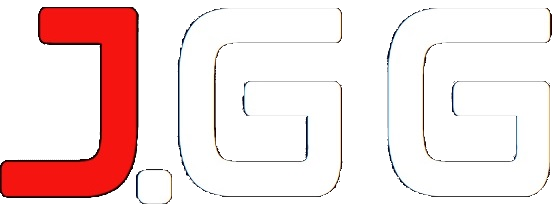Contact
About → ❓Thank you for checking out JAPAN.GG!🙇🏻♂️
Inquiries:
hello@japan.gg

The 1960s marked the birth of anime as we know it. Pioneering works by Osamu Tezuka, like Astro Boy, laid the foundation for future storytelling. These early series often featured themes of hope, technological advancement, and the potential of humanity.
1. Astroboy (1963)
2. Gigantor (1963)
3. Obake no Q-Taro (1965)
4. Kimba The White Lion (1965)
5. Osomatsu-kun (1966)
6. Sally The Witch (1966)
7. Speed Racer (1967)
8. Princess Knight (1967)
9. GeGeGe no Kitaro (1968)
10. Star of the Giants (1968)
11. Sazae-san (1969)
12. Attack No.1 (1969)
The 1970s saw a surge in popularity for genres like mecha (giant robots) and space operas. Series like Gundam explored the horrors of war alongside the thrill of piloting massive machines. Meanwhile, shows like Space Battleship Yamato captured the imagination with their epic space adventures.
13. Tomorrows's Joe (1970)
14. Tensai Bakabon (1971)
15. Lupin III (1971)
16. Gatchaman (1972)
17. Mazinger Z (1972)
18. Aim for the Ace! (1973)
19. Cutie Honey (1973)
20. Heidi (1974)
21. Space Battleship Yamato (1974)
22. A Dog of Flanders (1975)
23. Candy Candy (1976)
24. Space Pirate Captain Harlock (1978)
25. Future Boy Conan (1978)
26. Doraemon (1979)
27. Mobile Suit Gundam (1979)
28. The Rose of Versailles (1979)
The 1980s witnessed a rise in action-adventure and coming-of-age stories. Shounen anime, targeted at young boys, boomed with series like Dragon Ball Z, known for its high-octane battles and inspirational characters. Magical girl anime also flourished, with shows like Sailor Moon empowering young girls with themes of friendship and love.
29. Dr. Slump: Arale-chan (1981)
30. Urusei Yatsura (1984)
31. The Super Dimension Fotress Macross (1982)
32. Captain Tsubasa (1983)
33. Fist of the North Star (1984)
34. Touch (1985)
35. Dragon Ball (1986)
36. Saint Seiya (1986)
37. Soreike! Anpanman (1988)
38. Ranman 1/2 (1989)
39. Dragon Ball Z (1989)
The 1990s continued the popularity of shounen with classics like Neon Genesis Evangelion, which tackled complex psychological themes alongside giant robot battles. This era also saw the rise of sports anime like Slam Dunk and romance anime like Sailor Moon, captivating audiences with their dedication and emotional journeys.
40. Chibi Maruko-chan (1990)
41. Brave Exkaiser (1990)
42. Nadia: The Secret of Blue Water (1990)
43. Sailor Moon (1992)
44. Shin-chan (1992)
45. Yu Yu Hakusho (1992)
46. Slam Dunk (1993)
47. Slayers (1995)
48. Neon Genesis Evangelion (1995)
49. Detective Conan (1996)
50. Ruroni Kenshin (1996)
51. Pokemon (1997)
52. Berserk (1997)
53. Cowboy Beebop (1998)
54. Cardcaptor Sakura (1998)
55. Serial Experiments Lain (1998)
56. Digimon Adventure (1999)
57. Hunter x Hunter (1999)
58. One Piece (1999)
The 2000s offered even greater genre diversity. Studio Ghibli films like Spirited Away continued to enchant viewers of all ages with their breathtaking visuals and coming-of-age narratives. Slice-of-life anime, focusing on everyday experiences, gained popularity with series like Lucky Star. Meanwhile, darker and more mature themes emerged in anime like Death Note, exploring the consequences of wielding immense power.
59. Yu-Gi-Oh! Duel Mosnters (2000)
60. Love Hina (2000)
61. InuYasha (2000)
62. Naruto (2002)
63. Mobile SUit Gundam SEED (2002)
64. Fullmetal Alchemist (2003)
65. Elfen Lied (2004)
66. Bleach (2004)
67. The Melancholy of Haruhi Suzumiya (2006)
68. Death Note (2006)
69. Code Geass: Lelouch of the Rebellion (2006)
70. Naruto: Shippuden (2007)
71. Tengen Toppa Gurren Lagann (2007)
72. Clannad (2007)
73. Soul Eater (2008)
74. Toradora! (2008)
75. Fullmetal Alchemist: Brotherhood (2009)
76. Fairy Tail (2009)
The 2010s continued the trend of genre exploration. My Hero Academia brought a fresh take on the superhero genre, while Attack on Titan delivered a dark and intense story about survival. Isekai anime, where characters are transported to another world, became a popular subgenre with series like Sword Art Online.
77. Angel Beats! (2010)
78. Puella Magi Madoka Magica (2011)
79. Steins;Gate (2011)
80. Hunter x Hunter (2011)
81. Sword Art Online (2012)
82. Attack on Titan (2013)
83. No Game, No Life (2014)
84. Tokyo Ghoul (2014)
85. Your Lie in April (2014)
86. One Punch Man (2015)
87. My Hero Academia (2016)
88. Re;ZERO -Starting Life in Another World- (2016)
89. The Promised Neverland (2019)
88. Kimetsu no Yaiba (2019)
89. Jujutsu Kaisen (2020)
Thank you for checking out JAPAN.GG!🙇🏻♂️
Inquiries:
hello@japan.gg

JAPAN.GG is a Japanese Internet - Virtual Media Portal for Tourism, Entertainment and Technology. JAPAN.GG is your gateway to unforgettable experiences from cultural insights to exciting entertainment. Unlock the secrets of Japan, explore hidden gems and plan your dream vacation! - GG!

JAPAN.GG/MARKETS (formerly japanmarkets.org) is a free online database for the Japanese equity markets, specifically made for global-to-Japan FDI. Seamlessly navigate The Nikkei 225, Unicorn Startups and other useful information. The JAPANMARKETS.ORG website was specifically made for all netizens, users of the internet, students, traders and researchers.
Internet Economy & DX Infrastructure: JAPAN.GG is a leader in DX (Digital Transformation), building digital infrastructures and internet ecosystems. JAPAN.GG is building an information bridge with the world - in the era of borderless global connectivity - with the utilization of new and powerful internet technologies, partnerships and promotions. Global digital infrastructure is essential to maximize and accelerate the flow of information, similar to a highway to help drivers reach their A to B destination faster and more efficiently, amplifying overall economic productivity.

JAPAN.GG specializes in recommending the best cities, entertainment, products and services Japan has to offer, ensuring you to be well equipped and to find exactly what you need for your next travel! Whether you're seeking exploration, food, retro games, unique destinations, car culture or anything in between!Recommended by JAPAN.GG✅
Text
This is bold
i = 0;
while (!deck.isInOrder()) {
print 'Iteration ' + i;
deck.shuffle();
i++;
}
print 'It took ' + i + ' iterations to sort the deck.';